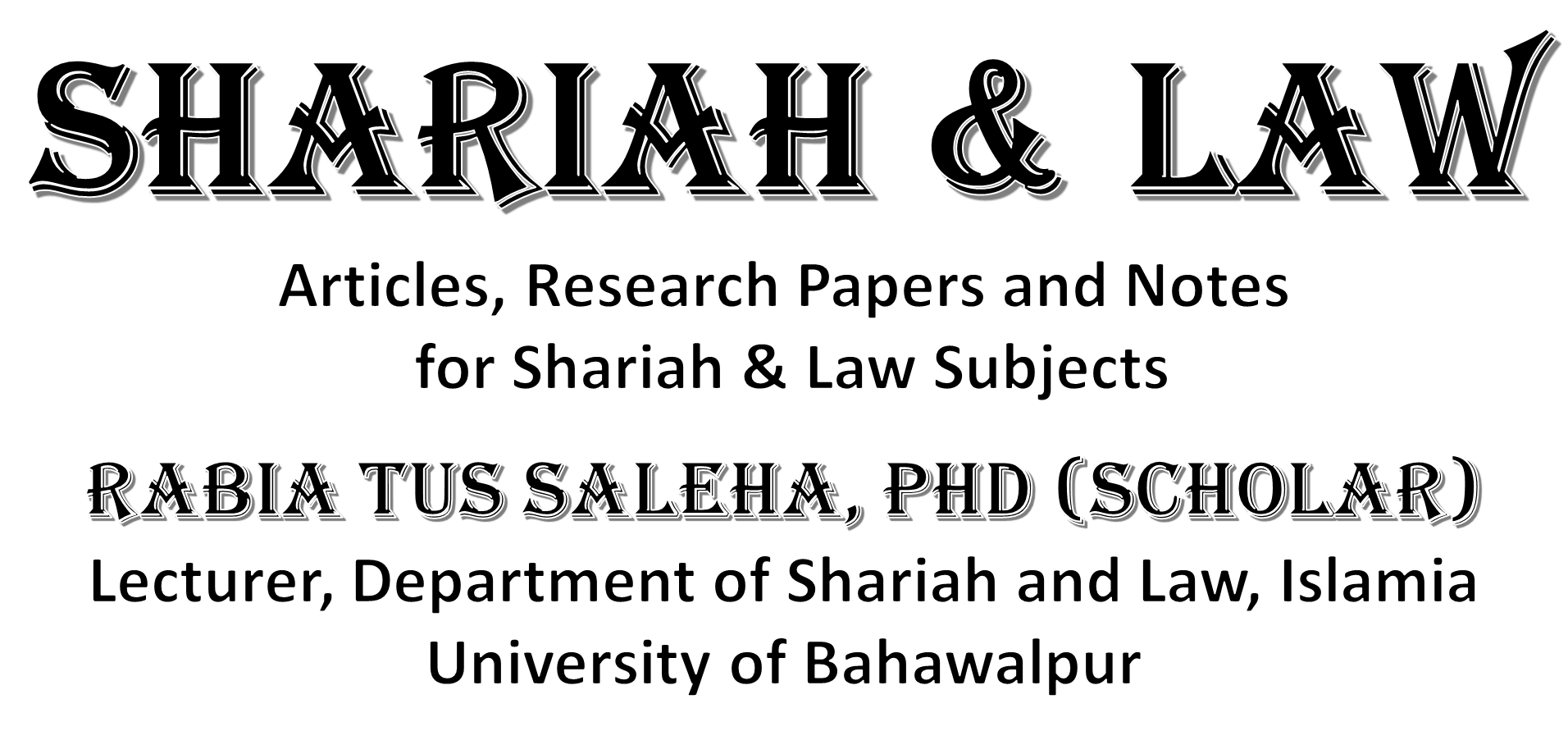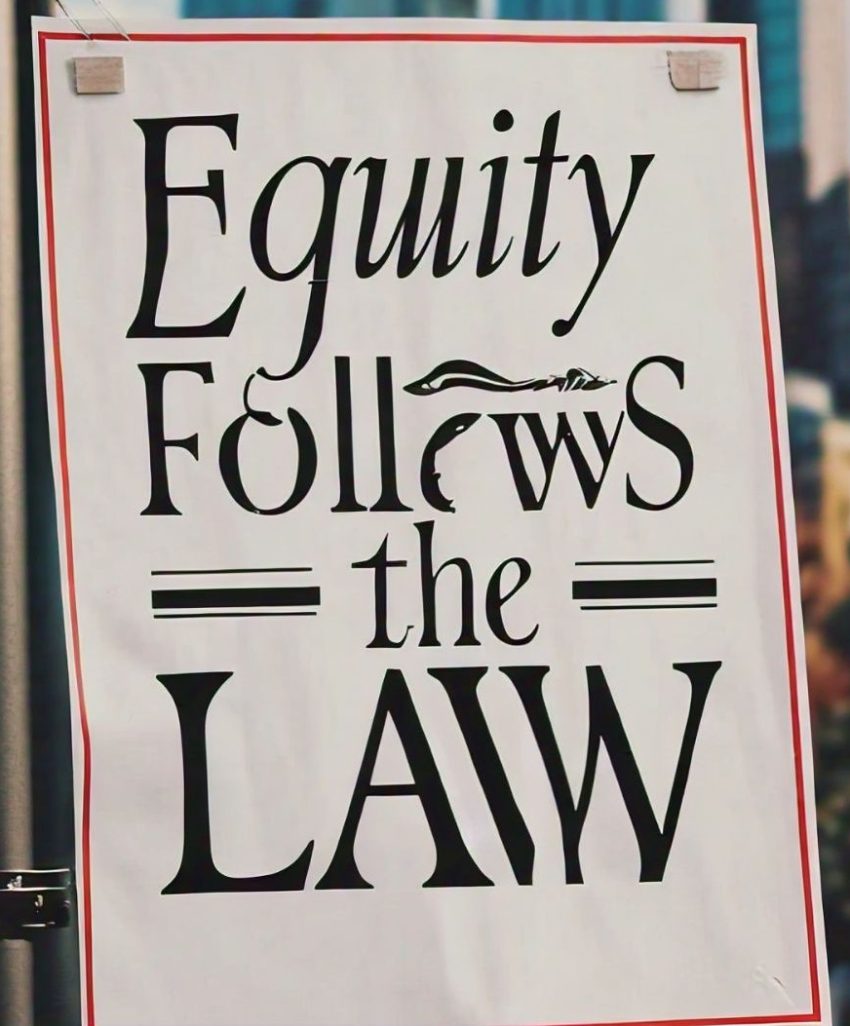2. Maxim: Equity follows the law.
- Equity follows the law means that equity does not clash with the law or override its provisions, as the Court of Chancery has never claimed to override the courts of common law. Where a rule of common law or statute law is direct and governs all circumstances, a court of equity is bound by the law. Hence, equity follows the law but not slavishly.
- It means that where the law is defective, and it is unable to provide justice and sufficient remedy, then equity will provide a remedy, keeping in view of existing laws.
- Equity does not come to destroy the law but for its fulfillment, explanation, and supplement.
- In other words, where there are some important circumstances disregarded by the existing law and rules, equity interferes as provided in the first maxim that equity intervenes to do justice and provide a remedy.
Examples:
Equity followed the law in many ways. Some of the examples are the estates and interests in land in equity which corresponded to those at law in the same sense.
- Equity acts in analogy to the rules of law in equitable rights and interests. There may be the same estates in equity and at law in regard to the quantity of the interest. Thus, equitable interests may be held in fee simple[1], a fee tail[2], a life interest[3], and a term of years, etc. e.g. Trust estates which are the creature of the equity shall be governed by the same rules as legal estates in order to preserve the uniform rules of property.
- Equity respected the rule of primogeniture. At Common Law, where a person died intestate who owned an estate in fee-simple, leaving sons and daughters. The eldest son (according to the rules of primogeniture) was entitled to the whole of the land while depriving all of his younger brothers and sisters. This was unfair, yet Equity Courts granted no relief.
- In matters of limitation, equity follows the law, and the statutory period of limitation prescribed for any suit, appeal, or application cannot be reduced or enlarged by a court of equity.
Case: Stickland v. Aldridge
In this case, it was held that if the son had induced his father not to make a will by agreeing to divide the estate with his brothers and sisters. Equity would have interfered and compelled him to carry out his promise because it would have been against his conscience to allow the son to keep the benefit of a legal estate that he obtained because of his promise. Equity recognized and respected legal rules. But the circumstance of giving a promise by the son to the father had added an element of conscience. This element leads to the rule that equity must be considered because it acts on the conscience of a person.
It was held therefore that the son must take it as a trustee for himself and his brothers and sisters. Thus, where a court of law missed an important point, equity corrected the law and followed it on the simple principle of conscience. Provisions of law cannot be allowed to be misused or abused or made an instrument of fraud or to perpetuate injustice by creating a breach of trust and a breach of contract.
Application in Pakistani Law:
In Pakistan, there exists no distinction between legal and equitable estates and interests. Maxim is of general nature and where there is an express rule of law that governs a particular point, equitable relief cannot be granted so as to render the statutory provisions a nullity. E.g. where a deed is required to be registered under the Registration Act, equity cannot override the statute and the person must register the deed for the fulfillment of his right or to claim any interest in the court.
- 17 of the Registration Act 1908 governs the rules of compulsory registration of documents,
- while S. 18 of the same Act governs the rules of optional registration of documents, and
- 50 deals with the priority rights.
- If registration is compulsory and a document is not registered, it is invalid in the eyes of the law.
- In another case where registration was optional, one of the two persons had registered that document while the other one had not got it registered. Here equity would follow the laws and provide the remedy to the person who had registered the document, despite it being optional. Here S. 50 of the Registration Act applies.
- If an action is time-barred under the Limitation Act, the court cannot enlarge the statutory period on the grounds of equity.[4]
- In the Quran, the owner of the property is obliged to make a Will in his life as he wants, but keeping in view of justice. If he dies by making a Will, which is based on inequality or bias-ness, can be rebutted in Court.
- Where the law was based on feudal tenure, equity refused to follow it.
Limitation: It has two exceptions as follows:
- Where specific and clear law is not applied.
- Where analogy is not applied. Equity formulates and applies its own rules, on the reason that injustice must be remedied. (If there is injustice).
Note: Read with Snell’s Principles of Equity.
Read also: First Maxim: https://shariahandlaw.com/equity-will-not-suffer-a-wrong-without-a-remedy/
[1] It is free to hold ownership without any limitations or conditions. It is also called as absolute.
[2] It is a type of tenure in the land with restrictions regarding the line of heirs to whom it may be willed. It is a type of trust established by deed that restricts the sale, inheritance, and alienation of the property by the tenant in possession.
[3] It is a form of right under a trust which lasts for the lifetime of the person (who takes the benefit). On his death, property will be transferred to the other person according to the trust instrument.
[4] Section 18 of the Limitation Act, however, engrafts an exception to the above rule. The rule is to the effect that the rights of a party who has been defrauded by the defendant cannot be affected by the lapse of time, so long as the plaintiff remains ignorant of the fraud, without any fault of his.


2 thoughts on “2.Equity follows the law.”